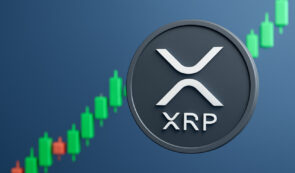Understanding Fair Launches: How They Work

Token presales are considered the most popular crowdfunding technique in the crypto space. In some cases, presales may occur in rounds. In each round, a select group of investors is allowed to participate. Afterward, the network sells to the public in the final round.
A fair launch is a type of crowdfunding in the crypto space, where the project sells tokens to every participant fairly. A fair launch allows for equitable and fair distribution of tokens. The tokens are fully available to everyone for purchase at the same price. This guide explores the features of fair launches and how they work. Keep reading.
Features of Fair Launches
There are many features that help in understanding the concept of fair launches. They include;
No Development or Team Incentives
The main feature associated with Fair launches is the commitment to eradicate team incentives. In fair launches, the idea is to restrict projects from issuing tokens before public access. In most cases, Defi projects will reward developers and teams with tokens for their role in the project.
However, the whole idea of this type of community funding is to provide equity and transparency. Some say that fair launches aim to eradicate development tokens. Hence, they do not issue a large chunk of the total token supply before the launch.
Some presale launchpads may require a small share of projects tokens. However, in the case of fair launches, the launchpads cannot take a share of the tokens. Some launchpads may allow projects to spare a small percentage of total supply, maybe 5%, for development reasons.
Fair Distribution of Tokens
Most presale platforms offer several crowdfunding rounds. The first round is often for white-listed investors who get the tokens early at friendly prices. The second round allows the public to buy at higher prices than the first round. Hence, they are never fair.
In the case of fair launching, everyone accesses tokens at the same price. Hence, every investor is valuable.
How Fair Launches Work
The process and functioning of fair launches are almost similar in all launchpads. Of course, after a project decides to use the fair launch to attract investors, they need to apply for listing. In many situations, founders must fill out a form.
The form has questions about the project, founders, and developers. Often, the documents are accessible via the launchpad’s official website. After filling in and sending the form, the approval process begins. It involves the following steps;
The Launchpad Look Into The Project
After receiving the developer’s request for listing, the launchpad approving team will look into the applicant. This step often involves some background research on the project and its founders. They will research the use cases, developers, and other aspects of the project. The idea is to get to know the founders and the role of the project in crypto.
Analysis of The Allocation
Of course, as mentioned above, allocation is a vital factor in fair launches. The idea is to ensure that most tokens go to the public. Different launchpads set a limit for development and other activities to about 5%of the tokens. Hence, the launchpads will look into the project’s token allocation.
Analyzing The Liquidity Requirements
They will look into the liquidity size, the locked liquidity, and many other liquidity-related issues. In most cases, 95% of the tokens are liquidity for the public. Projects should lock liquidity for some time. Before approval, the fair launch tokens must be ready to go into lockers.
Another aspect of a fair launch is how they set up liquidity. One launch platform claims that it analyzes the project’s token and liquidity pool. The idea is to make sure the liquidity pool maintains a reasonable size of funds to allow a proper fair launch to take place. In the end, there will be a good flow of transactions.
Looking into the Audit Report
Of course, it’s vital that every investor in crypto feel secure. Presale and fair launch pads take part in assuring inventors’ security. Before allowing any project to launch, the approving committee will check if the smart contracts are audited.
Today there are tonnes of smart-contract auditors accepted widely by most launchpads. The auditors include Certik, Solidproof, ConsenSys, Hacken, and others. You can use one of those auditors to assure the security of your project before fair launch.
Fair Launch
After completing the approval process, the project is ready for launch. On the set date, the project will launch. Anyone can buy the tokens from the allowed exchanges or the launchpad.
Final Words
This guide has been exploring the idea of fair launches and how they work. It intends to reduce or eradicate developers and team tokens. Moreover, no one has early access to tokens before the issuance day. There is no round one or private sale. By reducing or eradicating early token access, fair launches help foster equitable token distribution.
The process of fair launches is almost similar to that of presales. First, the developers apply for listing then undergo the approval process. The approval process involves looking into the project for use cases and the founders. The developers must also provide an audit report before the fair launch.




